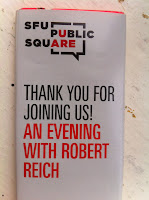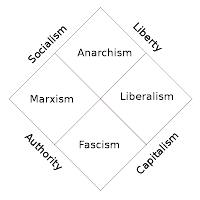Yes, it is me again. Remember I wrote you an open cyber letter about two and a half years ago on June 2, 2011 to be exact? It was desperate times then, and my humor was a fool's cap hiding my tension, distress and anxiety. I was in dire straits to say the least and kept looking up for help and guidance.
Then
one Thursday evening I felt the weight of helplessness turn into pure
and seething frustration. I had not found the stable job I was
looking for and, in fact, the most recent gig had fizzled into thin
air. It turned out that I had merely embarked upon an already sinking
ship. So in this mood, I entered a drug store that Thursday evening
and out of the blue I received a call for an interview for the
following day and was hired a mere few hours after the interview! My
life changed in a flash!
Things
thanks to you improved drastically thereafter. I got to teach
subjects I loved the most; I enjoyed the work environment and got
along very well with my boss, co-workers and students, and I had the
relatively stable income I had been looking for. So the following
month I bought the wished-for and promised iPad for my son's third
birthday. And I also ended up buying the flat-screen TV and the
Blu-Ray player mentioned in my previous letter. Taking out my family
for lunch or dinner became a more regular pastime as I did not have
to worry about making next month's rent.
(True,
a good chunk of my savings then went towards my son's dental surgery,
but again thank you for making him come out of it just fine! Those
were anxious and tear-filled hours, but it is now a thing of the
past, and I am grateful for it!)
So
as we both can see you have fulfilled everything I have asked of you!
It has been even beyond my expectations and only reinforces my belief
in the maxim of asking and thou shalt be given! I asked with an open and honest
heart, and you indeed blessed and showered me with all those gifts! My
gratitude knows no bounds!
In
fact, if I look at my checklist of things I would like to do, it has
become much smaller now. My blog was published as a book (although
not a bestseller but still), and I have been involved with some level
of film-making (this Halloween our student film club made an
interesting short film: Zombie Zone) as well as the occasional book
review (whenever I squeeze in some free time).
This
year of 2013 has been very good to us. It has not had the ups and
downs of previous ones, but that is a good thing. The summer was
amazing, and we got to do many things. There was also enough time to
catch up on movies and TV series. I had a rather sick Christmas (not in
the slang sense of an awesome one, but I was actually sick myself, and so was my family). But thank goodness again nothing too serious,
and we are all on the road of recovery again.
So
what am I asking for now? The continuation of how things have been
both job and health-wise, again if possible and if it so pleaseth
you. Of course, being a petty human who is never fully satisfied with
what they got, I would like to have a little bit more fame (perhaps a
rush of visitors to my blog?) and also wish to afford my own home
somewhere down the misty lane of life. But again, no rush.
On
the good side, I have reached a steadier and calmer outlook on life. I
realize that I am generally happier with who I am and where I find
myself. And I find myself closer to the spiritual world. I will try
to practice this and not let it escape my grasp; I am also aware
that one cannot grab things, but must learn to let things go, to simply be
and roam freely. So again my constant plea remains that if possible
give me the necessary shove here and there so I do not stray from the
Path.
I have realized lately that it is important to be good and
serene within, but that one must also act out those good intentions.
I will try to be so, more in acts than faithful words. One of the
things I have started to do, which again you already know, is to read
the Bible. I am trying to comprehend it and read between the lines to
understand what it is you or your spokesperson is asking of us
humans. At times I get a bit confused, but I blame this more on
religious spin doctors and not on your Word or Truth. In the
meantime, I continue to read and reflect upon philosophy to sharpen
my mind and soul and to be better at grasping or recognizing bit-sized truths on existence should I stumble upon them.
But
for now, I am happy as ever and wish everyone a very happy new year.
May 2014 bring us all blessings and perhaps a little bit more peace
and tranquility within and without.
As
usual and always with love,
Your
humble servant A











